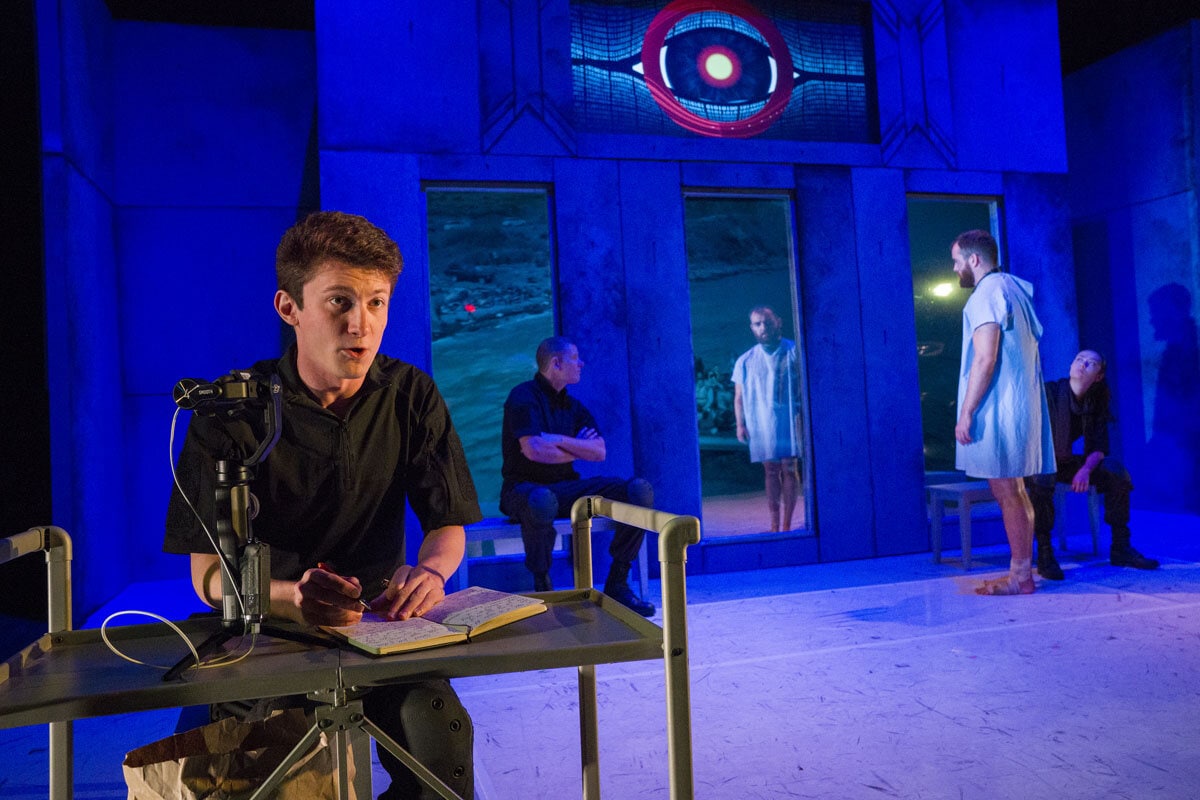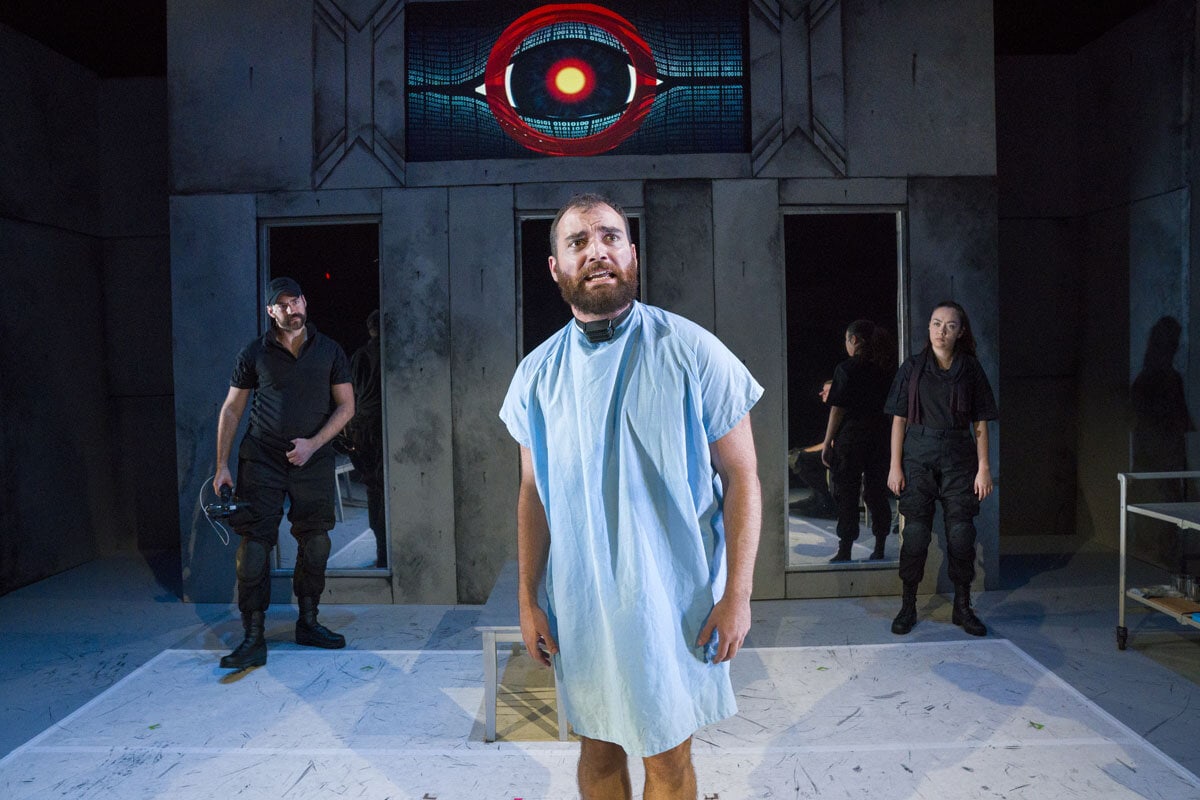Viewing Aquila Theatre’s adaptation of George Orwell’s 1984 at the Center for the Arts at George Mason University, I couldn’t help but wonder which came first “newspeak” or “alternative facts.” Obviously, it was the newspeak of Orwell’s imagination, since the book was written in 1949.

In this day of political correctness, many societies have given an undefined thought police the reins to control public thought and consequently speech. This is one of the ideas Orwell introduced some seven decades ago. The ever-present antagonists – thought police – are on hand to judge every action and search the thinking behind the action for meaning in his work.
Another example of Orwellian theory adapted today is “doublespeak.” Advertisers, advocates, corporations, government employees, members of the media and politicians have mastered the art of deliberately disguising, distorting or reversing the meaning of messages to further an agenda.
Reece Richardson is a superb Winston, or 6079 Smith as Big Brother refers to him. He wears a gown and dog collar throughout the play. Winston is not a powerful protagonist. He resists the party with his intellect and heart.
Winston is in the custody of four uniformed, jack-booted thugs described as party members at the Ministry of Love. As the play opens, Winston is again being interrogated via an audio remote that can presumably see into the interrogation room. When Winston answers imprecisely or claims not to know or remember, a powerful electrical impulse helps Winston remember. A sound effect with the power source created a shocking effect. Lucas Cardwell is the sound designer.
Then he meets Julia. At first, Winston wants to kill her. Julia follows Winston, so he thinks she is a state spy. When Winston finds out Julia’s intentions are far more physical, she wants his body, Winston thinks maybe it is time to trust somebody. The government prohibits illicit sexual relationships.

Julia is never seen in the play. The character comes to life through the reading of Winston’s diary. Party Member 2 (Tora Alexander) acts as Julia when the diary is read. Daniel Cassidy, another Party Member, reads for Winston during the readings. During one scene the Party Members are emotionally involved in the reading, sending another Party Member (Michael Catlege) into a violent rage. Chaos ensues as the Members attempt to justify their actions.
Writing about the past is another direct violation of party policy. The past is what the party tells you it is. “Who controls the past controls the future. Who controls the present controls the past,” is an often repeated slogan appearing on the screen and by the voice (Joanna Bending).
The cast are professional actors. Cameron Robertson played Party Member 4. During the reading of the diary, Robertson showed great depth playing Mr. Charrington, an elderly junk shop owner who sells Winston the diary and provides a bedroom, supposedly out of view of Big Brother, for rendezvous.
Julia and Winston are opposites. They enjoy sex with each other and they hate/resist the party, but that is all they have in common. Julia wants to live in the moment and make plans to avoid getting captured by the party. Winston wants to join an imaginary resistance movement and drags her along.
Director Desiree Sanchez said she had to choose between setting the play in the past, present or future at a pre-performance question-and-answer session. “Setting it today is difficult because it is so apropos,” she said. “It scares me.”
Sanchez manages to get a message across – totalitarian regimes suck – despite toning down some of the torture, language, and violence in the original story. One adaptation a few years ago had members of the audience puking during some scenes. Aquila’s is not that adaptation. This play ends differently than the book.
Running Time: 2 hours with a 15-minute intermission.
1984, presented by Aquila Theatre, played on November 23, 2019, at George Mason University’s Center for the Arts, 4373 Mason Pond Drive, Fairfax, VA. For upcoming events at GMU’s Center for the Arts, go online.
Lighting Designer, Steve Mackie; Projection Designer Lianne Arnold; Costume Designer Lauren Gaston.




